Bachelor of Journalism and Professional Writing
Degree Level Undergraduate
Year 2025
You're considered an Australian student if you are any of the following:
Degree Level Undergraduate
Year 2025
Entry Scores
2025 Guaranteed Entry
Year 12 (ATAR-based): 65.00
Year 12 (Grades-based): B,B,C
TAFE/RTO: DIP
View Guaranteed Entry Info
2024 Cut-Offs
Year 12 (ATAR-based):
- Internal: 65.00
TAFE/RTO: Cert IV
View full entry requirements
The admission criteria have been grouped to assist you to easily find the information most relevant to your circumstances. However, you may fit into more than one and the university will consider applicants against each of the relevant criteria.
Certain conditions apply. For more information refer to Appendix 4 of the University's Selection and Entry policy.
Applicants are required to meet one of the following criteria with a competitive result, and demonstrate that they fulfil any prerequisite requirements and essential requirements for admission:
Recent secondary education
Meet any prerequisite requirements with a minimum grade of C- or equivalent
AND
Applicants who have not achieved the Selection Rank required for automatic selection may be selected for any remaining places based on the grades of their year 12 subjects.
OR
Higher education study
OR
Vocational Education and Training (VET)
OR
Work and life experience
This degree can be packaged with a masters degree. For more information and SATAC codes visit Fast-track to Masters
UniSA is an unstoppable university for unstoppable people. As one of the World’s Top Young Universities2, we’ll ensure you get the experience your future profession demands so it’ll feel like you’re studying one minute and in a career the next.
12018 Excellence in Research for Australia (ERA).
2UNSTOPPABLE® is a Kellogg Company trade mark used under licence. Ranked #43, 2024 THE Young University Rankings.

Graduates of this degree (the only one of its kind in South Australia) are qualified to work as journalists in any medium, across any platform, and in media organisation newsrooms, local community news sites, niche and community media, and as freelance/entrepreneurial journalists. They are also well qualified to work across communication fields. An emphasis on professional writing opens doors to a wide variety of allied professions, such as technical writing, tender presentations, and marketing and communications.
You can explore journalistic areas of interest such as:
Our on-campus facilities, which include a TV studio, radio studio and editing suites, will ensure you graduate career-ready. They offer you the opportunity to practise recording news broadcasts, producing podcasts, and filming and producing video journalism with industry-standard technology. You will get the chance to practice these skills in a real-world environment when you complete an internship or industry project during your final year. This is a great opportunity for you to develop your skills and build important industry networks.
If you finish your degree with a credit or higher grade point average (GPA) you could also be eligible for the one-year Bachelor of Creative Arts (Honours).

This degree will provide you with the skills and knowledge needed to work as a journalist and writer in mainstream media and communication fields. An emphasis on professional writing also opens doors to a wide variety of allied professions, such as technical writing, tender presentations, marketing and communications. You will:
A final year journalism industry internship or project will further extend your knowledge and training.
You can gain an extra qualification and broaden your career prospects by completing a Diploma in Languages.

This is the only journalism degree in South Australia. Our graduates are some of the most recognisable personalities in the media landscape, with many going on to secure positions with the ABC, SBS, NITV, InDaily, Crikey, The Advertiser and The Australian, on commercial radio and TV networks, and at a range of digital and niche news sites and magazines.
We offer industry standard on-campus facilities, including a TV studio that boasts one of South Australia’s largest green screens, and a radio studio. This means you will graduate with plenty of practical experience and a portfolio of stories. You can also be part of the University’s own radio station, which is broadcast live on the internet, our TV show, which airs on Channel 44, or get your work published in our online student publication, On the Record or the national student publication, The Junction. A media internship or project during your final year will help to further develop these vital practical skills, your understanding of the media, and is a great way to build important industry connections.
This degree prepares you to work as a journalist in any medium, across any platform, and in media organisation newsrooms, local community news sites, niche and community media, and as a freelance/entrepreneurial journalist. As social media and other online platforms enable more people to say what they think and share what they see every day, the role of informed, knowledgeable, well-trained and ethical journalists in presenting truthful and accurate information in the public interest is more important than ever. Careers to consider:
The Media, Entertainment and Arts Alliance (MEAA) is the only national journalists' professional association in Australia. While journalists are not required to be formally accredited to practise, many Australian journalists are members of the MEAA. The Alliance promotes links between the industry and Journalism students at a state and national level.
Have any questions? We're here to help! Contact Adelaide University's Future Student Enquiries Team.
Applying to study with us:
Australian
There are other pathways you can follow to study this degree, including:
International
There are other pathways you can follow to study this degree, including:
This degree is available for deferment. This option is made available by responding to your offer during the application process via the SATAC website. Applicants who receive an offer into a midyear degree are eligible to defer for six months.
Every year, over 2,500 UniSA students are supported in their studies through scholarships and grants worth millions of dollars. Check out the scholarships below. One of them may be perfect for you. Visit our scholarships page for more.
$5,000 scholarship for South Australian students with an ATAR of 99 who enrol to study a UniSA undergraduate degree.
Up to $10,000 per annum (full time) for South Australian students who obtain an ATAR of 99.95 or IB equivalent and enrol to study at UniSA.
Our campuses are home to fantastic facilities including modern lecture theatres, libraries, workshops and laboratories, as well as spaces that simulate real work environments. But you’ll also discover that your journey at UniSA is about social experiences, healthy living and getting involved. You’ll find student sports and fitness facilities, community clinics, tech zones and chill-out spaces. There are campus sport activities to keep you active, and if you are keen to explore the social side of university life, there are movies, cooking demonstrations, parties and loads more.
Adelaide also has a variety of accommodation options to suit different requirements and budgets. Options include dedicated student accommodation and private rentals. See our long-term accommodation pages, or explore our student accommodation by Scape on Bank Street in Adelaide’s lively cultural precinct, an ideal location for students. It is within easy reach of UniSA’s city and metropolitan campuses, Rundle Mall shopping, the Central Market, Chinatown, and the West End’s vibrant nightlife. It is also across the road from the Adelaide train station, and on bus and tram routes.
As a journalism and professional writing student you will have access to:

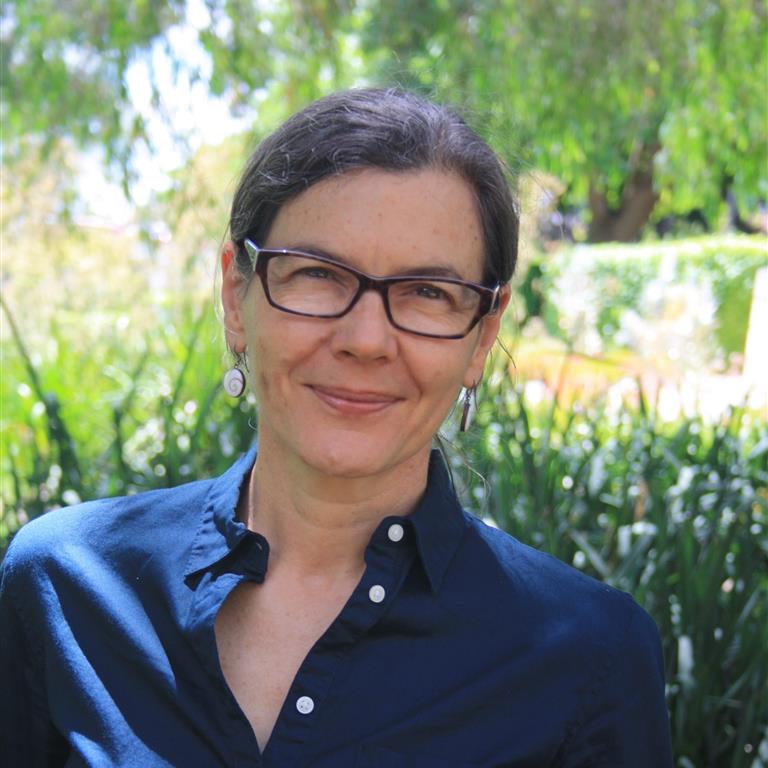
The way you apply for UniSA will depend on the undergraduate or postgraduate coursework degree you're interested in studying.
The majority of applications are made via the South Australian Tertiary Admissions Centre (SATAC). Check out more information on the SATAC website and follow the appropriate process for your degree of interest.
There are a small number of degrees that you need to apply for through direct application processes. The process you need to follow will be listed on the 'How to Apply' section of the degree homepage, but you'll also be taken to where you need to go if you hit the 'apply' button.
If you are interested in studying one of our 100% online degrees you'll need to apply directly to UniSA Online.
You can find more information about the application processes for UniSA on our How to Apply webpage.
If you're more interested in applying for a postgraduate degree by research, check out and follow the information in our step by step guide to applying.
Applications for all degrees will close ahead of study commencing, but the timelines may vary for undergraduate and postgraduate degrees.
The deadline to apply to study a degree at UniSA for semester one (commencing late February) and be guaranteed equal consideration is generally in very late November or early December. While you may be able to apply after this date, you are not guaranteed to be considered equally with other applicants and your application may not be assessed in time for the main round of offers. More competitive degrees may not make any offers after the main offer round. Find more information on the Key Dates section of the SATAC website, but you can also call the Future Student Enquiries team for more information on 08 8302 376.
Many postgraduate by coursework degrees do not have set closing dates. The exceptions are highly competitive degrees, so it is best to check – either on the degree homepage on the SATAC website or by checking with our Future Student Enquiries team.
As most postgraduate applications are assessed as they are submitted and offers are continuous, there are no set closing dates for applications. Degrees can be filled and closed with little notice so it is best to apply as soon as possible to avoid missing out on a place. For more information, please contact our Future Student Enquires team on (08) 8302 2376 or submit an enquiry.
You may be eligible for credit or advanced standing for your chosen UniSA degree based on your previous studies, if they are in a related area and completed within a certain timeframe. Receiving credit or RPL will reduce the number of courses you undertake within the degree, and may also reduce the overall duration of your degree. You can read more about our pre-existing credit agreements through our online Credit Assessor. If you have related industry experience, you may also be eligible to receive recognised prior learning (RPL) for this experience. Credit and RPL is assessed by the Program Director once you've received an offer, and you apply through UniSA's current student experts, Campus Central.
Future Student Enquiries welcomes the opportunity to meet with you to discuss your study options at UniSA. We can discuss degree information, entry requirements and pathways, applications, general career outcomes and student life, so you have the information to make the best study decision for your future. Head to our Book an Appointment webpage to find a date and time to speak with us, and take your next steps on journey to university study.
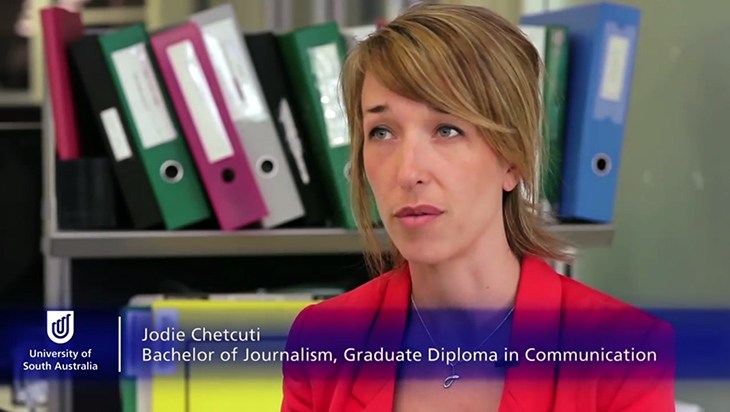
Hear from journalism graduate Jodie.
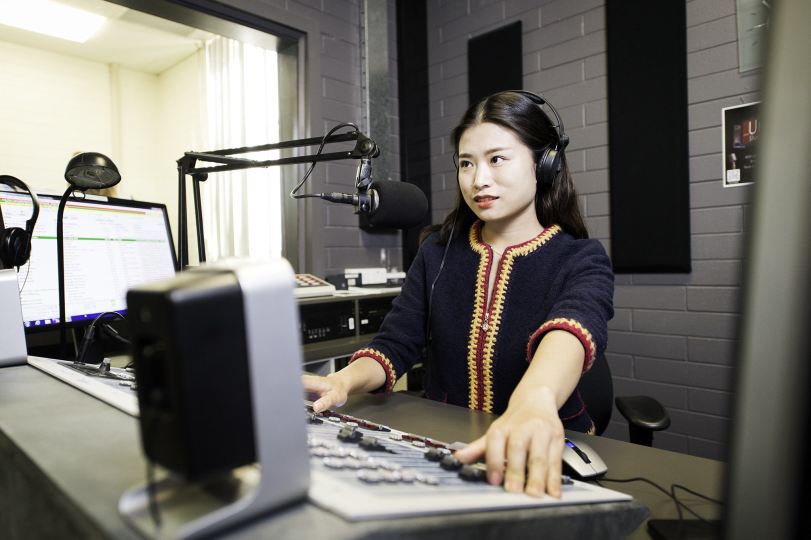
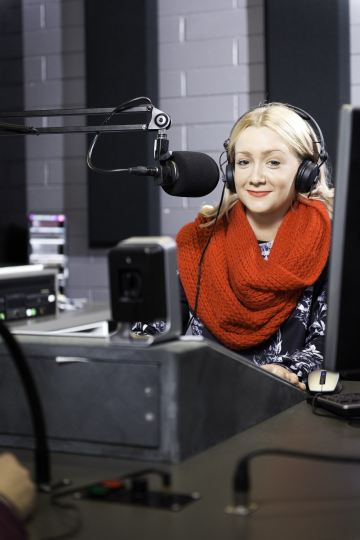
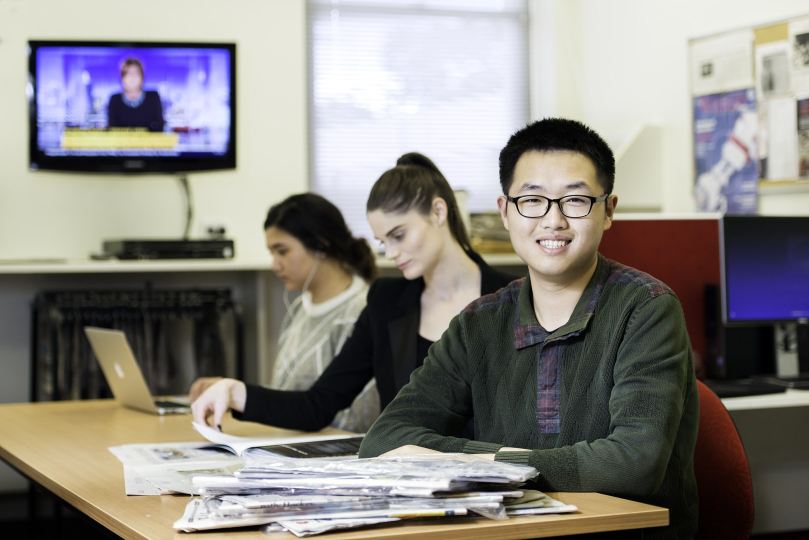
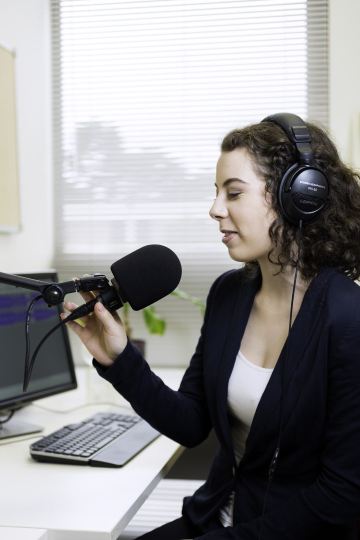
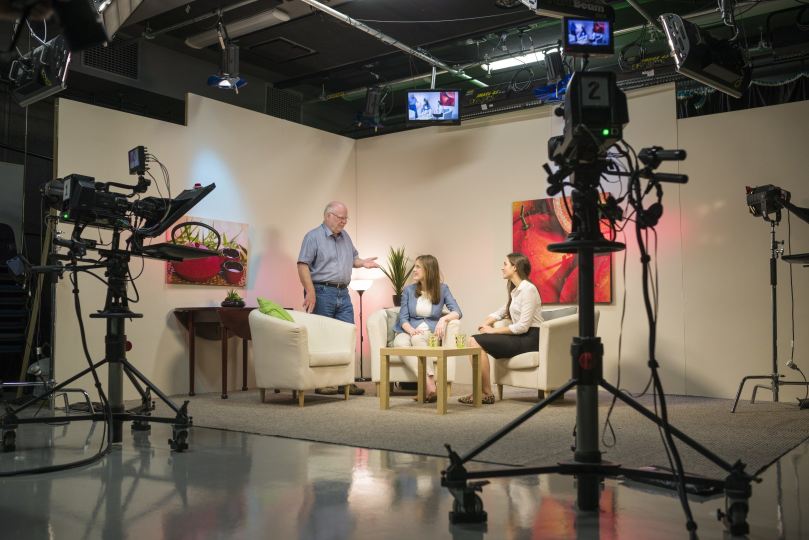
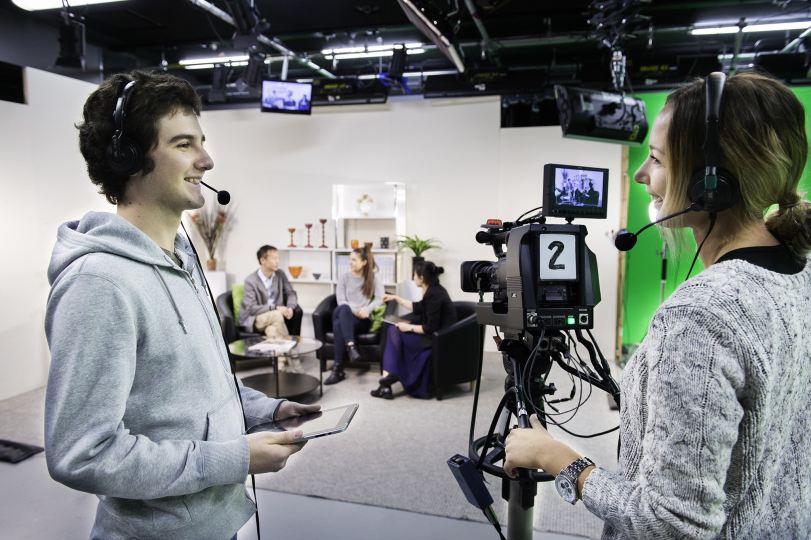
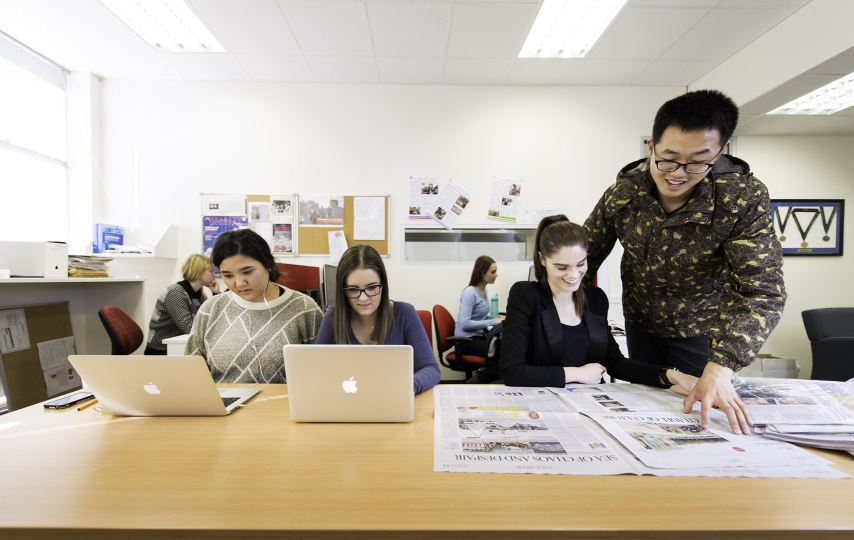
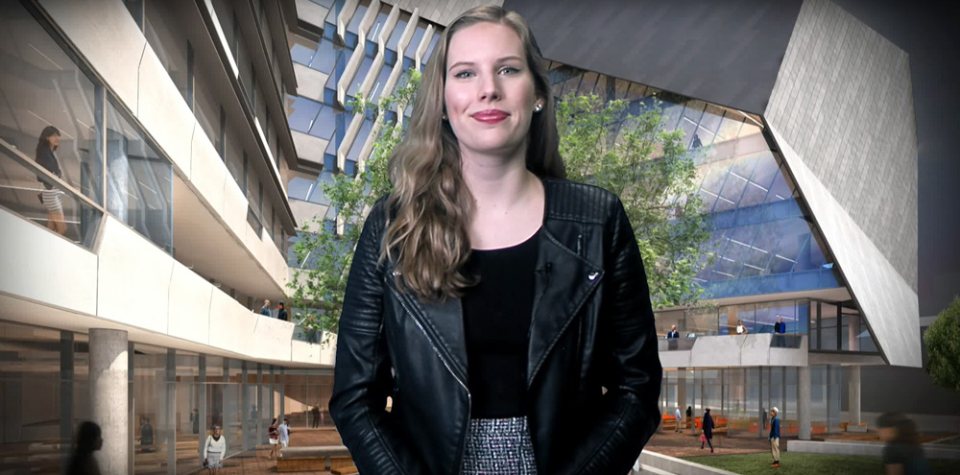
UniSA Journalism and Professional Writing student - Olivia
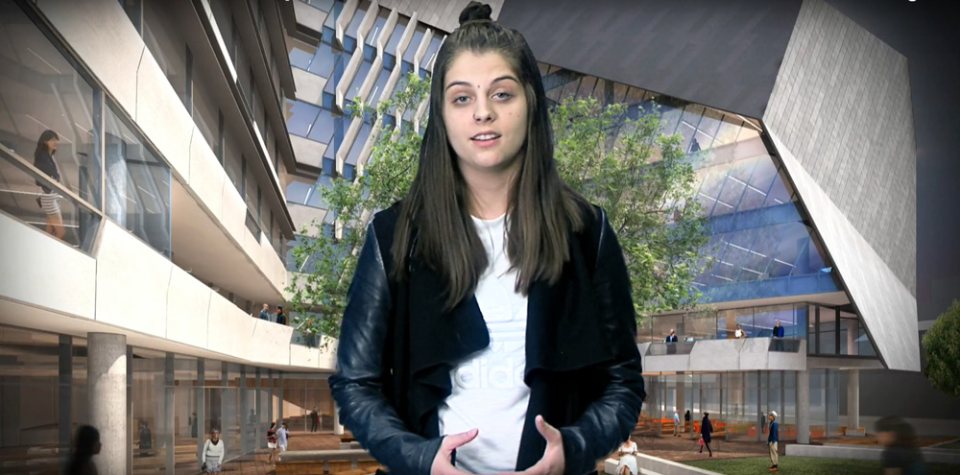
UniSA Journalism and Professional Writing student - Isabel